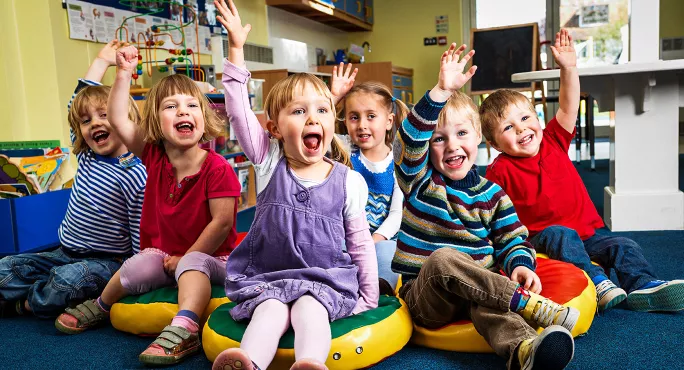- Home
- Analysis
- Early Years
- How Labour can put learning at the heart of its nursery plan
How Labour can put learning at the heart of its nursery plan

Having won the election, the Labour Party is now in a position to fulfil its manifesto commitment to open more than 3,000 nursery classes across England, converting spare school classrooms into “high quality” spaces for nurseries.
This is certainly a welcome ambition: it promises to secure the 6 per cent increase in places needed to service the last government’s expansion of childcare and address current shortfalls.
Crucially, Labour’s pre-election commitment presented early years provision as an educational service for children rather than just “childcare” for parents.
We do not yet have details for how Labour intends to deliver this policy: will schools be expected to run all the new early years provision? Or could voluntary and private sector providers offer early years provision in school spaces?
Beyond these logistical questions, though, there are two pedagogical concerns that the government must consider to ensure that integration of early years into the education system delivers better outcomes for all children.
Labour’s early years plans: key considerations
1. Avoid the ‘baby blindspot’
The needs of babies and young children are unique and must be understood and valued - they are not just small versions of older pupils and they require distinctive provision that meets their unique needs.
Yet in systems designed for and dominated by older, bigger and more visible children, the unique needs of babies and young children can easily be overlooked.
This phenomenon, known as the “baby blindspot”, has been observed in several other policy areas.
- Labour plans: When could the new government’s education promises become reality?
- Breakfast clubs: Labour plan “could cut half a million days of absence”
- Education policy: Why Labour should create a National Education Assembly
In an integrated education system, teachers of older children are likely to have more power, pay and prestige compared with early years practitioners.
Of course, primary school teachers and leaders are highly skilled professionals, but even the very best do not necessarily have the requisite training and experience in quality early years provision.
So to ensure that babies’ and young children’s needs are understood, the integrated education system must recognise the expertise of early years practitioners and give them a voice and position within schools and trusts so that key decisions take babies’ and young children’s needs into account.
2. Recognise the strength of early years education
The Early Years Foundation Stage (EYFS) has proven a considerable asset because it is designed with babies’ and young children’s needs in mind.
For example, the EYFS recognises the importance of holistic early development, of play and of partnerships between early years settings and parents. It also reflects the need to understand the different developmental stages and needs of individual children.
It does this by focusing on three “prime areas” of learning and development: it recognises how children’s communication and language development, physical development and personal, social and emotional development are the foundations of being able to function and thrive, and the basis for subject-specific learning.
Assessment at the end of the EYFS covers children’s all-round development as well as some basic academic knowledge and skills.
In contrast, at the end of key stage 1, assessment only captures measures of reading, writing, maths and science. The focus on wider child development and holistic skills are lost.
Could giving more prominence to the EYFS within schools stimulate a broader change in how we think about our education system and what we want from it?
Leading academics argue that playful learning and a “breadth of skills approach” promote better mental health, make children better collaborators and critical thinkers, and make them more empathetic and more creative - skills widely recognised as critical for thriving in today’s world.
The values and principles that inform the EYFS should therefore perhaps inform future changes to wider primary curriculums and assessment.
Don’t miss this chance
There is much to gain from applying early years principles within the wider school system; creating more child-led, play-based, holistic and developmentally appropriate learning experiences.
There is also much to be lost if, instead, the formal, academic focus of the system that Labour has inherited is applied to the earliest years.
It is therefore critical that Labour ensures that its bold ambition to boost education for our youngest learners recognises, protects and promotes the features of early education to benefit all children.
Sally Hogg is a senior policy fellow at the Play in Education, Development and Learning (PEDAL) research centre at the University of Cambridge
For the latest education news and analysis delivered directly to your inbox every weekday morning, sign up to the Tes Daily newsletter
You need a Tes subscription to read this article
Subscribe now to read this article and get other subscriber-only content:
- Unlimited access to all Tes magazine content
- Exclusive subscriber-only stories
- Award-winning email newsletters
Already a subscriber? Log in
You need a subscription to read this article
Subscribe now to read this article and get other subscriber-only content, including:
- Unlimited access to all Tes magazine content
- Exclusive subscriber-only stories
- Award-winning email newsletters
topics in this article



